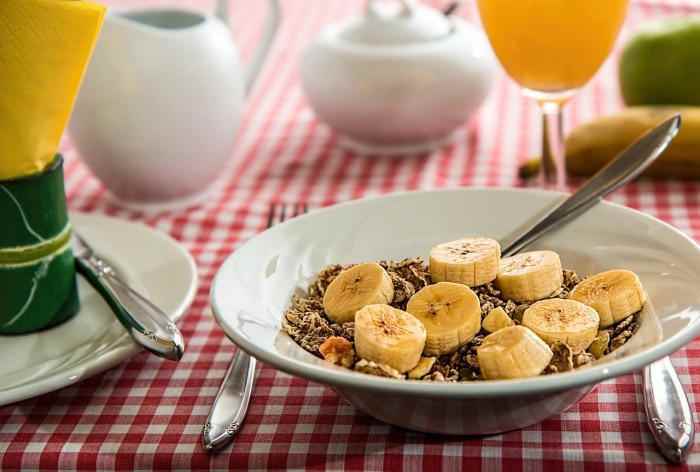When it comes to maintaining a healthy diet and managing weight, fruits are often a topic of discussion. Among these, bananas have been both praised and questioned for their impact on weight management. In this article, we’ll explore the truth behind the claim: “Does banana really make you fat?”
Bananas, a popular fruit worldwide, have often faced scrutiny due to their sugar content. However, their nutritional value goes beyond just the sugar content, making them a staple in many diets.
Nutritional Profile of Bananas
Bananas are rich in essential nutrients such as potassium, vitamin C, vitamin B6, and dietary fiber. These nutrients play various roles in supporting overall health, including heart function, immune system health, and digestion.
Calories in Bananas: Debunking the Myth
While bananas do contain calories, the notion that they are a high-calorie fruit contributing to weight gain is not entirely accurate. A medium-sized banana contains around 105 calories, making it a reasonable choice for a snack.
The Role of Fiber in Weight Management
One of the key factors that set bananas apart is their fiber content. Fiber aids in digestion, promotes a feeling of fullness, and can assist in managing weight. This means that bananas can be a satisfying snack option that helps control appetite.
Natural Sugars in Bananas: Friend or Foe?
Bananas do contain natural sugars, including glucose, fructose, and sucrose. However, these sugars are accompanied by fiber, which slows down their absorption and prevents rapid spikes in blood sugar levels. Therefore, bananas can be part of a balanced diet without causing significant blood sugar fluctuations.
Bananas as a Pre-workout Snack
The easily digestible carbohydrates in bananas make them an excellent choice for a pre-workout snack. They provide a quick source of energy to fuel your workout and help prevent muscle cramps due to their potassium content.
Glycemic Index and its Significance
The glycemic index (GI) measures how quickly a carbohydrate-containing food raises blood sugar levels. Bananas have a relatively low GI, indicating that they have a moderate impact on blood sugar. This further supports the argument that bananas are a suitable fruit for those concerned about blood sugar levels.
Balancing Your Diet: Incorporating Bananas Wisely
Like any other food, moderation is key when it comes to bananas. Incorporating them into a well-balanced diet that includes a variety of nutrients is more important than singling them out as a culprit for weight gain.
The Connection Between Bananas and Satiety
Fiber and resistant starch in bananas contribute to a feeling of fullness. This satiety-promoting aspect of bananas can prevent overeating and aid in weight management goals.
Banana Myths and Facts
Myths about bananas causing weight gain often overlook their nutrient density. Bananas are not inherently fattening; rather, they can be part of a calorie-controlled diet.
The Impact of Overconsumption
While bananas offer numerous health benefits, consuming them excessively can contribute to an excessive calorie intake. Remember that a balanced diet requires variety, so don’t rely solely on bananas.
Healthy Ways to Enjoy Bananas
Incorporate bananas into your diet creatively: blend them into smoothies, add slices to oatmeal, or enjoy them with a dollop of peanut butter. This way, you can savor their flavor while reaping their nutritional rewards.
A Balanced Lifestyle: Beyond Just Bananas
Weight management involves a holistic approach that encompasses a balanced diet, regular physical activity, and adequate sleep. Relying solely on or blaming bananas for weight issues oversimplifies a complex matter.
Expert Opinions on Banana Consumption
Nutritionists and dietitians often advocate for the inclusion of bananas in a balanced diet. Their nutrient content and benefits make them a valuable component of a healthy eating plan.
Conclusion
In conclusion, bananas are not a direct cause of weight gain. Their fiber content, essential nutrients, and relatively low glycemic index make them a suitable fruit for those looking to manage their weight. Remember that no single food item leads to weight gain; it’s the overall diet and lifestyle that matter most.
FAQs
Q1: Can I eat bananas every day?
A: Yes, you can include bananas in your daily diet as part of a balanced eating plan.
Q2: Are green or ripe bananas better for weight management?
A: Both green and ripe bananas have their benefits. Green bananas have more resistant starch, while ripe ones are sweeter and easier to digest.
Q3: How many bananas should I eat in a day?
A: Eating 1-2 bananas a day is a reasonable and healthy amount.
Q4: Do bananas have any negative effects on blood sugar?
A: The fiber in bananas helps regulate blood sugar levels, minimizing spikes.
Q5: Can bananas replace a meal for weight loss?
A: While bananas are nutritious, it’s best to consume a variety of foods to meet your nutritional needs.
